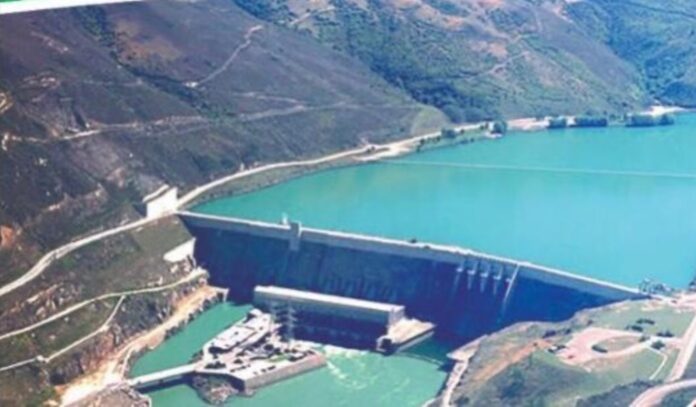Prime Minister Shehbaz Sharif has directed relevant authorities to include the $8 billion Diamer Bhasha Hydropower Project (DBHP) within the China-Pakistan Economic Corridor (CPEC) framework.
BR reported that the Ministry of Water Resources has communicated the Prime Minister’s directive to the Power Division and Private Power and Infrastructure Board (PPIB) for further action on including DBHP in CPEC.
Chinese company PowerChina, already involved in the construction of the Roller-Compacted Concrete (RCC) dam component of the project, is bidding for the second phase, which includes the underground powerhouse and power generation facilities.
In a letter to the Prime Minister, PowerChina Chairman Yanzhang pledged the company’s commitment to timely and high-quality completion of the project, leveraging its existing resources and equipment on site.
The project, led by Wapda, offers significant benefits, including water storage capacity of 6.4 million acre-feet (MAF) and hydropower generation of 18.1 billion units annually.
As per estimates, the cost of electricity from the project would be approximately Rs15 per unit, based on the previous year’s exchange rate. However, the project still requires foreign financing beyond the already secured $500 million, with $3.5 billion needed—comprising $1.2 billion in equity and $2.3 billion in foreign debt.
Wapda is currently financing the project from its hydropower tariff revenues. It will recover only the cost of the power generation component from consumers. Wapda’s revenue stream includes energy sales proceeds and annual grants from the Public Sector Development Program (PSDP) for water infrastructure development.
The Diamer Bhasha project is being executed in two phases—dam construction and power generation facilities. The PC-I for the dam was approved by the Executive Committee of the National Economic Council (ECNEC) in 2018, with an estimated cost of Rs480 billion.
The second revised PC-I for land acquisition and resettlement, valued at Rs175 billion, was approved in September 2021. In April 2023, the PC-I for the power generation facilities was approved at a total cost of Rs1,424.36 billion, which includes a foreign exchange component of Rs715.88 billion ($2.55 billion) and a local component of Rs78.48 billion.
Power Minister Sardar Awais Leghari recently informed the Senate Standing Committee on Power that hydel projects, including Diamer Bhasha, would be reviewed to determine if they are cost-effective. He also mentioned that the lack of a transmission line for the project could lead to additional costs, and a feasibility study for the line will be conducted to assess the exact financial impact.
Federal Minister for Water Resources Musadik Masood Malik highlighted the potential for surplus electricity if Pakistan achieves a 3-6% GDP growth rate over the next decade and avoids delays in ongoing energy projects. He expressed support for the project’s continuation, provided financial closure is achieved, while acknowledging the reputational risks associated with potential delays.




